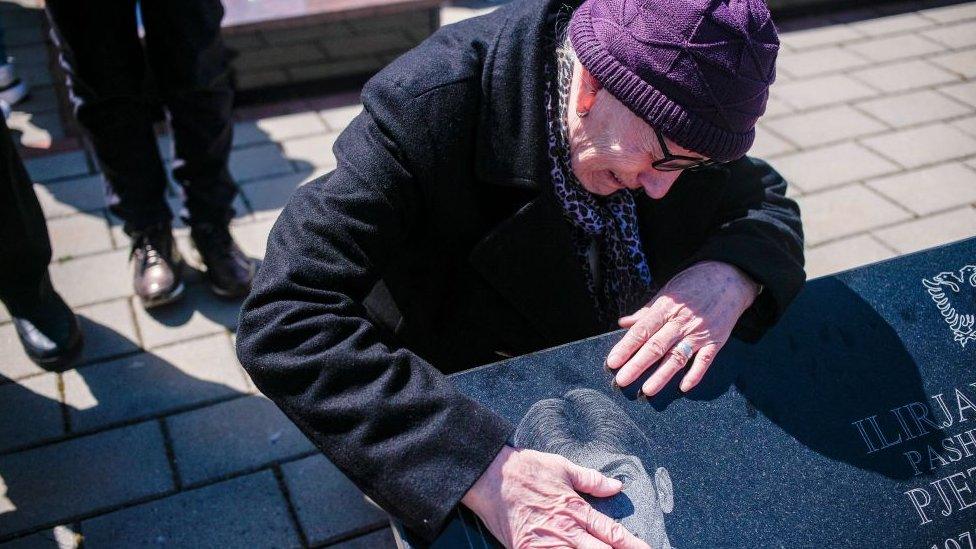Kosovo and Serbia agree to help find war's missing
- Published

A woman cries over the grave of her brother in Kosovo on the Day of Missing Persons
The leaders of Serbia and Kosovo have agreed to co-operate to locate and identify hundreds of people still missing from the 1998-99 war.
More than 13,000 people were killed during the conflict which pitted the overwhelmingly ethnic Albanian majority of Kosovo against Serbia.
According to the European Union, 1,621 people remain unaccounted for.
The EU has led efforts to normalise ties between Serbia and Kosovo, which declared its independence in 2008.
Most Western countries have recognised Kosovo, but Serbia has not.
was reached during talks in Brussels on Tuesday.
Under the deal, Serbian President Aleksandar Vucic and Kosovo Prime Minister Albin Kurti pledged to use satellite data and other advanced technology, including laser mapping, to detect mass graves.
They will also share official files and form a joint commission on missing people, to be chaired by the EU.
"More than 20 years after, their families continue to live in grief, unaware of the whereabouts of their loved ones," said the EU's foreign policy chief, Josep Borrell, who mediated the deal.
"Families have the right to know the fate of their relatives as does society at large."
Most of those killed and still missing are Kosovo Albanians.
Tuesday's deal follows a normalisation agreement between Serbia and Kosovo, which Mr Borrell announced in March.
The fate of missing persons is one of many outstanding issues between the two sides. Recent acrimony has focused on demands to set up an association of Serb-majority municipalities, which Mr Kurti sees as a tool to undermine the Kosovo government's remit across the country.
Serbia has been accused of backing Kosovo Serbs resisting Pristina's authority.
Mr Borrell admitted that Tuesday's talks had not managed to bridge the gap between the two sides on the issue - their views remained "far apart", but they would continue talks.
The high representative urged the leaders not to allow strife in northern Kosovo - where ethnic Serbs have boycotted Kosovo institutions - to escalate.
Related topics
- Published3 April 2023
- Published29 December 2022